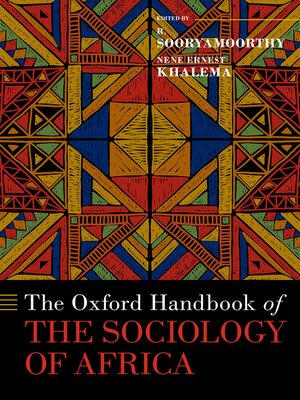
Sign up to save your library
With an OverDrive account, you can save your favorite libraries for at-a-glance information about availability. Find out more about OverDrive accounts.
Find this title in Libby, the library reading app by OverDrive.



Search for a digital library with this title
Title found at these libraries:
| Library Name | Distance |
|---|---|
| Loading... |
The Oxford Handbook of the Sociology of Africa presents to a broad readership an accessible, comprehensive, up to date, and topical comparative analysis of sociological thinking in Africa. Sociological discourse about African societies has been challenging and difficult, due to a lack of both comprehensive analyses and holistic sociological evidence that covers Africa from past to present times. This Handbook brings together latest analyses of sociological phenomena from the best scholars working on numerous thematic areas. It provides contributions that locates African sociological thinking in historical context and takes a critical look at its current manifestations across the continent. This collection builds upon an existing body of literature which has demonstrated that while the analysis of African societies has long been an item on the agenda of sociologists worldwide, advances of the decolonial critique made notably by African scholars in Africa enhances the scholarship of the sociology of Africa. Thus, the collection is premised upon the understanding that in order to understand the sociology of Africa as significant intervention, the participation and representation of African ways of knowing and doing is a critical starting point. This Handbook comprises a series of scholarly and interdisciplinary perspectives on current debates over how best to unpack sociological imaginations in African context. The scholarly contributions, therefore, are based on both perspectives illustrating the importance of specificity in sociological phenomenon. The Handbook is arranged in seven parts: Context and Perspectives; Race, Ethnicity, and Religion; Gender, Sexuality, and Intersectionality; Medical Sociology: Political Economy and Development; Crime and Violence; and The Family and Education. Premised on the importance of African ways of knowing and doing, these chapters offer sociologists, researchers, and students an invaluable starting point for a fuller understanding of African sociology.







